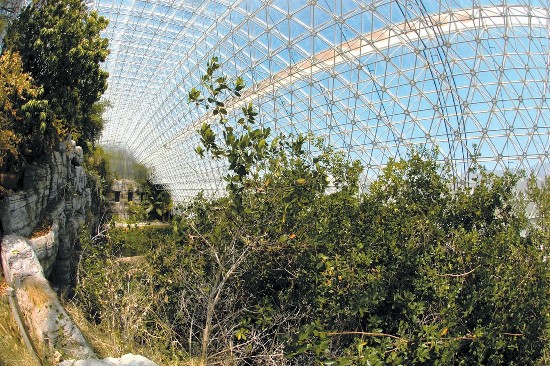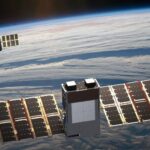The efforts by agencies like NASA and China’s Space Agency, along with companies like SpaceX, Blue Origin, and Sierra Space, are making a critical error in trying to put human square pegs into space round holes. As much as I have often written about humanity’s future on other worlds, it is clear to me that the more I study the less I am convinced that we, as we currently are, can thrive and multiply in the extreme environments to which we are headed.
For those of us who evolved here within the protective bubble of Earth, outer space, the Moon, and Mars are foreboding environments. We wouldn’t stand a chance of surviving without bringing a micro version of the contents of Earth bubbles along with us. And even then, external forces could lead to our early demise.
Are Humans Built for Space?
Establishing a permanent human presence in space let alone on the Moon and Mars would indeed be a lot easier if we could be pre-adapted to handle the environment. When Charles Darwin observed how species adapted to their environments or died out by way of natural selection, the rules of nature and probability determined outcomes. This is the Earth-based evolution model.
A modern version would be selection by unnatural means using tools like CRISPR or engineered stem cells to enhance humans to adapt to low gravity and exoplanet and lunar environments. Re-engineered humanity would be capable of tolerating high-radiation environments. Genetically engineered traits would change us to make the odds of our survival much better.
Not to be outdone by those committed to conquering the environment of space, there are those here on Earth who suggest we do the same to humans living here as we face a changing planet because of global warming. Instead of dispensing with fossil fuels, we would genetically alter ourselves to make us climate-change resistant.
Is it realistic for Elon Musk to endeavour to establish a permanent human presence on Mars in his dream to save the species should an asteroid wipe out life on Earth even while knowing that we are ill-adapted to survive the environment of the Red Planet?
Is living in an Earth bubble on another planet, a moon, or a Deep Space habitat our human destiny? Some people believe if we can get to a place like Mars we could begin terraforming it to turn it into an Earth twin. Musk has proposed setting off thermonuclear bombs on Mars to warm the planet, unleash its subsurface and polar ice cap water, and the oxygen trapped in its oxidized red soils. He has also proposed to use a satellite network to create an artificial magnetic field to block solar and cosmic radiation.
Humans Never Evolved to Live in Space
The human body cannot handle space. When astronauts were first chosen for NASA’s Mercury program they were an elite group in top physical shape. They were subjected to all kinds of torture tests. The Mercury missions were short. The Gemini that followed were longer. And the Apollo missions lasted the duration of a lunar voyage and back.
Today, after more than two decades of human habitation of the International Space Station (ISS) we know now that we don’t adapt. Instead, exposure to low-Earth orbit space changes DNA, flattens eyeballs to impair vision, disrupts sleep patterns, decalcifies bones, reduces muscle mass, weakens hearts, causes brains to swell, and compromises immune systems.
Add to that the radiation from cosmic rays and the Sun. In low-Earth orbit which is really in the high atmosphere of Earth, the ISS crews are relatively shielded from space-based radiation. But a solar storm in Deep Space, on the Moon or Mars, would cause acute radiation sickness. And unlike the shielded ships of Star Trek, at present, there is no technology to protect us in space.
Again, if we could re-engineer our human DNA, we might be able to mend ourselves when exposed to radiation, or for that matter, any other damage to our bodies that could occur in space. So, maybe, a new version of ourselves could become spacefaring.
But what about dealing with the mental side of outer space travel and living in isolated settlements on the Moon or Mars? Imagine being confined within a small spaceship, no bigger than a house trailer for a six to seven-month voyage to Mars. What will be the mental toll on humans undergoing such a journey? And upon arrival on Mars, where crews will largely be confined to live within an Earth-bubble equivalent, what other mental crises will these humans face?
This isn’t colonization as practiced in the past here on Earth. On Mars, the soil will be barren containing perchlorate chemicals that our current plants cannot tolerate. The air outside the Earth bubbles we build will be unbreathable. The low gravity will weaken bodies adapted to Earth’s gravity. This is not the equivalent of Europe’s discovery of the Americas which already were richly populated by native civilizations. This is at best dangerous, and at worse, suicidal.
The romanticism of space has been brought to us by the writers of science fiction. But unless we change physically to have a chance to survive conditions worse than any found on Earth, there will be no happy endings to those bitten by the outward urge bug that is motivating people like Musk, NASA and others to send humans to other celestial bodies.
And yet, at a recent conference held at Biosphere 2 in the Arizona desert, the mood of attendees was optimistic about going to the Moon, Mars and beyond. When the audience was asked “Where do we go from here?” after hearing all the things that could go wrong, enthusiastically shouted, “To the Moon.”
















